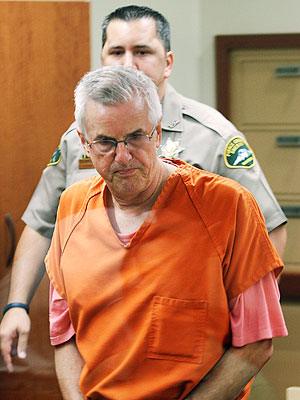ANTALYA, Turkey — Military commanders of the main Free Syrian Army units from all over Syria agreed Friday to a unified command structure, bowing to intense pressure from Qatar and Saudi Arabia, who the fighters said promised more advanced weapons once a central military council was in place.
The agreement, the product of three days of intensive talks among more than 260 rebel commanders, was a marked departure from previous attempts because it was built strictly around commanders from inside Syria.
Following the terms of the pact, the participants elected a 30-member Supreme Military Council, which then selected the chief of staff, Gen. Salim Idriss, by consensus. Previous attempts at unification all foundered on disagreements over the structure, tensions between officers inside and outside the country and the failure of donors to provide the weapons they promised.
But analysts warned that despite the atmosphere of comity, the agreement could still come unglued — fierce arguments from the meeting occasionally overflowed into the marble lobby of a luxury hotel here, where the rebel commanders with their beards, leather jackets and track suits made a sharp contrast to golfers and other guests.
“We accepted everything because they promised everything — even paradise,” Ahmad al-Qanatri, the commander of a military battalion in northern Idlib Province, said of the conference sponsors. “The structure is good, but all on condition we get something. I am not sure we will. If we see any rockets and missiles, it will probably be the ones fired at us.”
“From the outside you see all these victories and you think, ‘Wow!’ But I am fighting with nothing,” Mr. Qanatri added.
Several elements have transformed the chances for unity sticking this time around, participants said.
First, dozens of governments participating in the Friends of Syria meeting in Morocco, on Wednesday want to see signs of a viable alternative government in order to extend recognition to the opposition coalition, reorganized less than a month ago. Coalition members are scheduled to meet in Cairo on Saturday to begin selecting a prime minister and a cabinet.
The United States in particular has emphasized that the coalition must show strong links to the interior forces, both the rebels and civilian society. Rebel commanders said that three representatives from the Central Intelligence Agency — one from headquarters, one from Turkey and another from Jordan — attended their discussions here but did not comment.
Second, there is a growing sense that extremist jihadist forces are beginning to eclipse the rest of the opposition with better weapons and fighters. But outside powers have been reluctant to provide much-demanded antiaircraft and antitank missiles until they are assured that the arsenal will not fall into the wrong hands if the rebels achieve their goal of toppling the government of President Bashar al-Assad.
Third, rebel commanders said they were facing a stark new reality. Their advances in recent weeks have been built largely on fatigue and low morale among government soldiers, as well as on random weapons captured from military bases, they said.
But both the initial attempt to batter the ramparts of Damascus and the long struggle for Aleppo have given many commanders the sober sense that they had better obtain stronger weapons for any final showdown over the main government strongholds.
The meeting here concluded with twin promises between the commanders and their outside supporters. In exchange for unification, the main backers of the rebels said they would funnel money and weapons through the new military council rather than playing favorites among the groups, commanders said.
“Before, they were always trying to bring different factions to their side, they created divisions, but now they are helping to create unity,” said Gen. Abed Farzat, a military commander from Aleppo.










